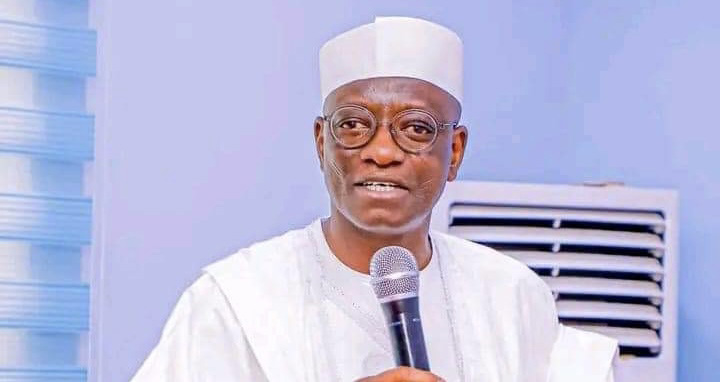The senator representing Nasarawa West, Ahmed Wadada, has formally resigned his membership of the Social Democratic Party (SDP), citing deepening internal disputes within the party as the reason for his decision.
Wadada’s resignation was conveyed in a letter addressed to the SDP chairman of Tudun Kofa Ward, Keffi Local Government Area of Nasarawa State. In the letter, he described the move as a painful but necessary step, given the persistent divisions threatening the unity and progress of the party.
“This decision was not an easy one, but it has become unavoidable due to the prolonged internal wrangling that continues to weaken the very foundation of our party,” the senator wrote. “I have always believed in the ideals of service, unity, and progress, but these ideals have been compromised by the crisis within the SDP.”
Wadada, who won the Nasarawa West senatorial seat on the platform of the SDP in the 2023 general elections, has been a prominent figure in the party and one of its most visible elected officials at the national level. His exit is expected to deliver a significant blow to the party’s standing in Nasarawa and beyond.
Although he did not disclose his next political move, speculation is already mounting over which platform he may adopt ahead of the 2027 elections. Observers suggest that both the All Progressives Congress (APC) and the Peoples Democratic Party (PDP) could be possible destinations, given his political influence and track record in Nasarawa politics.
Political analysts say his resignation highlights the struggles of smaller political parties in Nigeria, many of which face recurring internal conflicts, weak structures, and leadership tussles that hinder their ability to compete with the country’s two dominant parties.
“This is a classic case of internal disunity weakening a promising alternative,” said Abuja-based political analyst, Musa Ibrahim. “When key figures like Wadada, who embody the party’s strength in certain regions, bow out, it not only reduces the party’s national profile but also makes it harder to mobilize grassroots support.”
Reactions from SDP members in Nasarawa have been mixed. While some expressed disappointment at his decision, others said they understood his frustrations with the party’s divisions. A party official in Keffi, who preferred not to be named, admitted that the infighting had taken a toll but expressed hope that reconciliation efforts would continue.
Meanwhile, Wadada reassured his constituents that his resignation from the party would not affect his commitment to service. “I remain dedicated to representing the good people of Nasarawa West with integrity and diligence,” he said.
The SDP leadership has yet to issue an official response to the senator’s resignation.
With Wadada’s exit, attention is likely to shift to how the SDP plans to rebuild its presence in Nasarawa and whether the senator’s next political steps will reshape the balance of power in the state ahead of the next election cycle.





